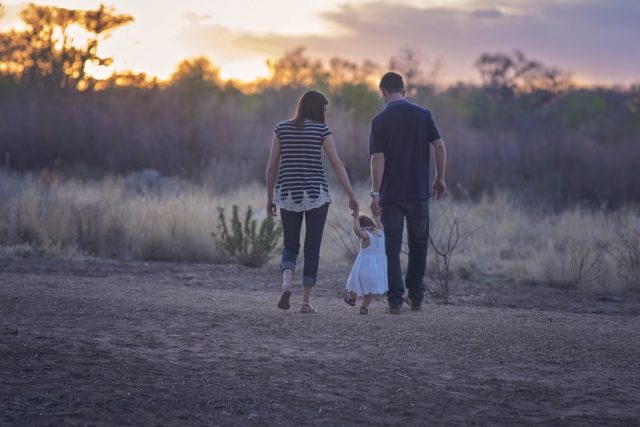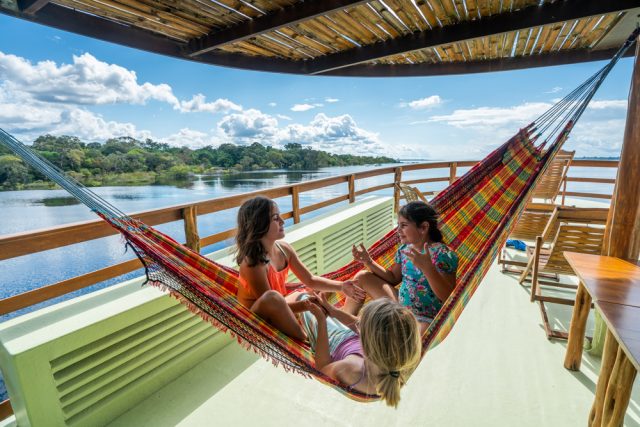Creating Space for Family Time and Other Ways to Combat Busyness
ABOUT
At Our Whole Village, we plan meaningful vacations for families who want to create lifelong memories and show their kids the world in a more conscious and intentional manner.
WORK WITH US
We help families take meaningful vacations so that they can escape everyday life, show their kids the world and make lifelong memories - with care, confidence and peace of mind.
THE BEST FAMILY VACATIONS BY AGE
Your (free) guide to the top travel destinations for families with babies, teens and everyone in between.
DOWNLOAD NOW
ABOUT US
February 12, 2020
The mad rush to make it to every karate practice, soccer game, music lesson, and swim meet wears us thin. Between our work schedules, getting the kids to and from school, and extracurricular activities, there’s hardly time to enjoy family time–a meal together, a relaxing conversation with our spouse, or family travel.
Busyness has taken over our lives. In many ways, it most directly impacts parents. Let’s explore steps you can take to lighten your load and reduce your stress.
Busyness as a Status Symbol
Busyness has become a status symbol. To look busy is to look useful and valuable. Or, as Donna Torney observes, “Our culture values achievement and ‘doing’ so highly that this feeds our compulsion to be busy: our addiction to cataloguing what needs to be ‘done’ and steadily and relentlessly working our way through it.”
We overschedule ourselves creating impossible expectations. When we fail to achieve our goals, we experience shame and guilt. We feel somehow deficient as if life and time are spinning out of control. This psychological state breeds anxiety, discontent, and frustration. And we are modeling this unhealthy behavior, the culture of busyness, to our kids.

© Dmytro Zinkevych | Dreamstime.com
Busyness & Parenting
As parents, we don’t just fall into the busyness trap for status, though. We’re also attempting to rise to society’s current standards of “good parenting.” We want to provide the best and brightest futures for our children, and we’re hyper-conscious of how little time we have to make this happen.
Across the ages, parents have dealt with societal expectations. In the past, parents combatted things like “idleness” and “immoral influences.” But kids took charge of their free time. They participated in unstructured play, honing their imaginations and social skills.
Today’s parents deal with unprecedented stress, including the expectation that we schedule our children’s free time. We do this to develop our kids’ talents and accomplishments. But we also do this because society tells us the world is a dangerous, terrifying place where children must never be left with unstructured, idle time. The result can be exhausting for both parents and kids alike.
Identifying the problem is half the battle. Then comes the work of establishing priorities, setting boundaries, and learning how to say, “No.”
Rethink Your To-Do List
Do you have a to-do list that’s a mile long? If so, you’re not alone. That said, this approach to staying on track may put you behind. Excessively long task lists correspond with outsized expectations, and they leave us feeling as though we’re playing a perpetual game of catch-up. This feeling is exhausting in and of itself. What’s more, it’s not conducive to doing your best work, living your best life, or being the parent you want to be.
Instead of looking at your to-do list as though it’s holy writ, consider it a “brain dump” exercise. This perspective means you can still craft a list of everything you’ve got to do. And since you’ll no longer struggle to remember everything (because it’s down on paper), you can relax a little. But there’s a caveat. You must permit yourself to not do any of the things on your list. In other words, make it clear to yourself that you don’t have to complete the list today, tomorrow, or ever.
Does this approach sound scary? It is if you’ve become a busyness junkie. In our society, it’s all too easy to fall into this pattern. Nonetheless, making this task a daily practice will help you clear your mind as well as narrow in on the essentials. Removing the “clutter” of life starts with identifying what’s essential and then cutting out the rest.

© Creative Commons Stock Photos | Dreamstime.com
Learn to Say “No”
Humans are social creatures who thrive on reciprocity. What’s more, we also live in a “yes” culture where the “go-getter” remains the only role model for “successful people.” Because it’s in our nature to be socially obliging, we don’t use the word “no” nearly enough. It feels too much like confrontation.
As a result, we say “yes” to too many things, things that we don’t even want to do. We overcommit when it comes to our time, energy, and finances, and this can come at a significant physical and emotional cost to us.
What’s one way to make saying “no” easier? According to researchers, it can be as simple as using different words. Instead of saying “no” or “I can’t,” try “I don’t,” followed by the verb of your choice. Suggestions include: want, wish, need, like, etc. By changing up the phrase, researchers have found that it allows people to more easily extract themselves from situations where they’re at risk of committing to something they don’t want to do.
Why does this semantic change up work? Because “I can’t” often gets interpreted as the start of a debate. But “I don’t” indicates that you’ve established clear boundaries, boundaries that you’re committed to keeping.
Find Your Tribe
Call it what you like, a clan, a network, a tribe, a family (we like to use “village” ;)). Whatever the term you settle on, you need to find your community. In other words, a core group of likeminded people. This group should make you feel like you ’re part of a greater whole. They should foster the kind of comradery where you can share your interests, ideas, and work in harmony.
You might be reading this and thinking, “But I don’t have time for this!” Think again. Cultivating friendships is critical to your health and well being. When you form relationships based on understanding and support, you create a safe space to decompress and de-stress. As you go about identifying the people who should be a part of your tribe, keep these tips in mind.
- Be mindful of the people you surround yourself with.
- Look for positive people who make you feel calm and relaxed.
- Remain self-aware and connected with how the people around you make you feel.
Still not sure where to begin when it comes to finding your tribe? Join our Facebook group to start interacting with other parents who value travel, adventure, and are also knee-deep in the process of raising global kids.
Combat Busyness with Family Time
Scheduling regular family vacations—where you unplug and get away from hectic daily routines—is crucial to establishing a new standard of non-busyness.
Great family vacations allow you to live fully in the moment. Stress melts away as you learn about other cultures and cultivate mindfulness. Family vacations help you reconnect with loved ones and gain perspective. They bring you and your family back to what’s truly important in life.
Travel allows you to eschew concerns like making it to every baseball practice or music lesson. You can leave work behind, too. Especially when you opt for an unplugged vacation like a river cruise through the Brazilian Amazon.

© Eric Stoen | Travel Babbo
Take Back Your Life One Step at a Time
Of course, successfully building space in your life to decompress, savor experiences, and stay mindful, and enjoy family time isn’t a process that you can complete overnight. Trying to tackle too many changes at once can leave you feeling even more stressed out. Instead, take one positive step in the right direction every day and make family travel a priority. As Lao Tzu put it so long ago, “The journey of a thousand miles begins with a single step.”
Not sure where to begin when it comes to family vacation ideas? At Our Whole Village, raising globally-minded children is our passion. We create meaningful adventures designed for families who want to create lasting memories while making a difference.
We’re here to help you and your family experience the world, its peoples, and its cultures. Contact us today to learn more about the unforgettable experiences that we handcraft to introduce kids to the world and raise good global citizens.
OUR SERVICES
HOME
COPYRIGHT © OUR WHOLE VILLAGE 2021
DESIGN BY GIRLBOSS DESIGNER | CUSTOMIZED BY ALEX COLLIER DESIGN
about
TRAVEL SERVICES
DESTINATIONS
BLOG
PLAN A TRIP
FREE TRAVEL GUIDE
TERMS AND CONDITIONS
hello@ourwholevillage.com
+1 305 432 2612